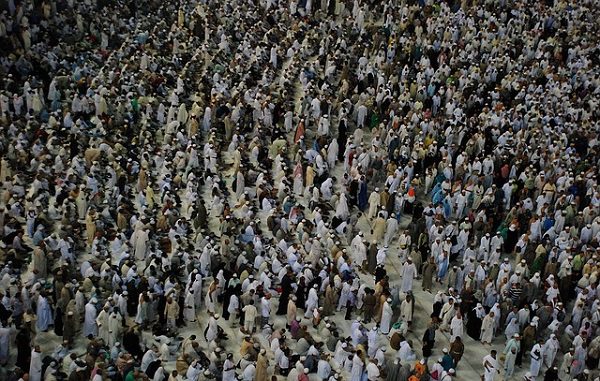
The Hajj is a religious pilgrimage that is obligatory on able-bodied adult Muslims who can afford the trip. Muslims have been performing Hajj for almost 1,500 years. The rites of Hajj commemorate important events from Islamic and biblical history, giving pilgrims a unique opportunity to focus on prayer and repentance.
While the rituals of Hajj are the same for all pilgrims, the meaning of the pilgrimage can be unique to each person. As for me, I didn’t fully grasp what Hajj meant to me until we stopped to help this woman.
First and foremost, Hajj is about faith. Faith in terms of prayer and beliefs, but also the notion that we must be comfortable with the idea of fate. Hajj teaches us that we must put in the work but also accept that much is outside of our control. As Prophet Muhammad once said, “Trust in God, but tie your camel.”
Hajj is also about resilience. As people, sometimes we forget how strong we actually are. Hajj can be demanding on even the fittest of pilgrims, and yet we manage to complete it. We encountered this woman on the most physically taxing day of the pilgrimage, but we were never at a loss for energy. Hajj reminds us that we can always get up and do more.
Hajj is about humanity. Hajj illuminates the power of the human spirit. Despite barriers of language and culture, my heart was lifted by the countless acts of kindness I witnessed during Hajj. And, despite the sheer volume of pilgrims attending hajj, the beauty of hajj often reveals itself through individual interactions between people.
Hajj is about community. Although we often think about prayer and faith as personal and inward, hajj encourages us to look outward to the community around us. Who is in my community? What does my community look like? How can I better my community? How do I think of community in the most inclusive sense possible?
Which naturally brings us to selflessness. So much of Hajj is about the challenge of putting others before ourselves. I was proud that my little band of Americans stopped everything to help this elderly woman. It was the right thing to do. But, I began to question whether I had been so generous during the rest of my Hajj. Hajj showed me how much good can come of being selfless, but how hard it is to do.
Lastly, Hajj is about patience. Before I left home for Hajj, I was told that the most important thing to pack was patience. During hajj, one’s patience can be tested in the most holy and most mundane moments. Even as we aided our fellow pilgrim, I found myself impatiently asking why the local authorities had not yet arrived. I should have been asking, “What more can I do to help?”
Hajj is an amazing experience, but in the end, you will return home. The challenges of performing the Hajj are replaced by the challenge of how to take the lessons of Hajj forward. I’m now back in New York and no longer have the same opportunity to visit holy sites each evening or spend countless hours in prayer. What I do have, however, is the opportunity to build the meaning of Hajj into my daily life.
Asim Rehman is a lawyer, husband, father and proud New York native. He is the co-founder and former President of the Muslim Bar Association of New York. Asim has written and spoken on issues concerning civil liberties and the Muslim American community, served on a U.S. Department of Homeland Security Working Group, testified before the U.S. Commission on Civil Rights, and was sent by the U.S. State Department to India to talk to audiences about civil rights, civic engagement, and the U.S. legal profession. Asim has been a Term Member with the Council on Foreign Relations and is a Fellow with the American Muslim Civic Leadership Institute.












